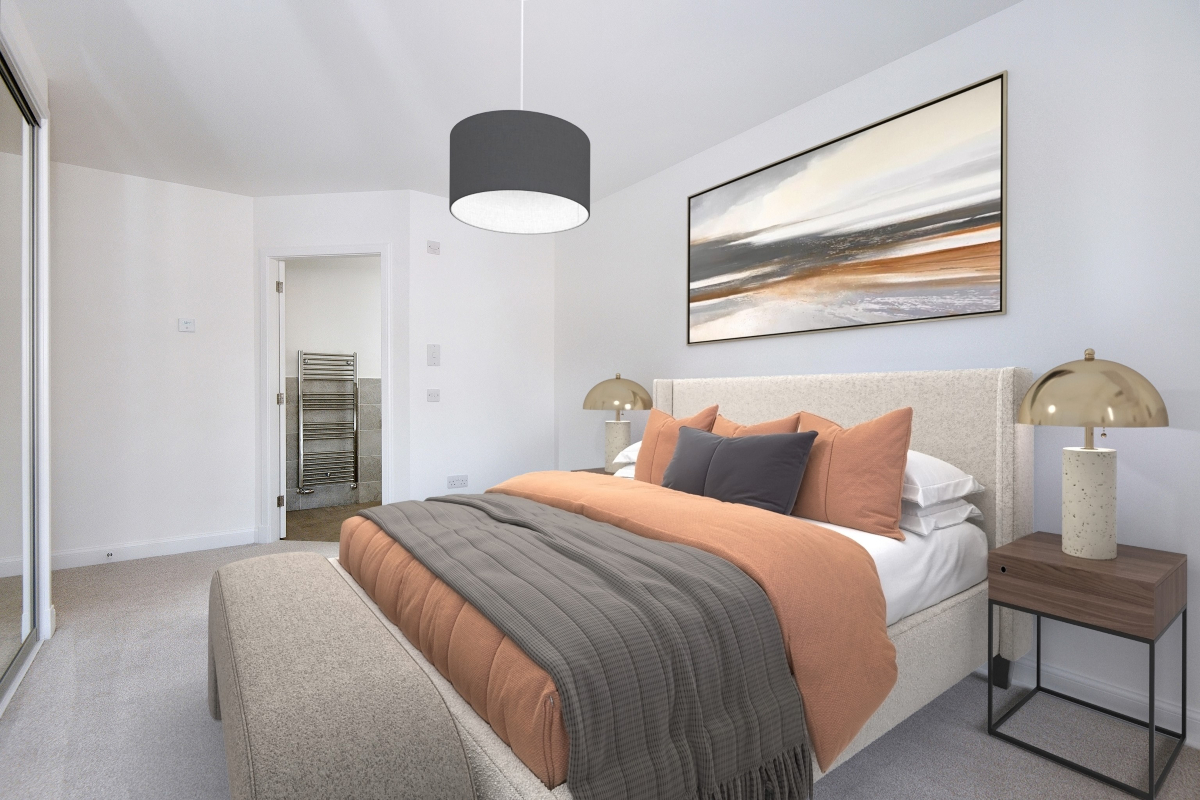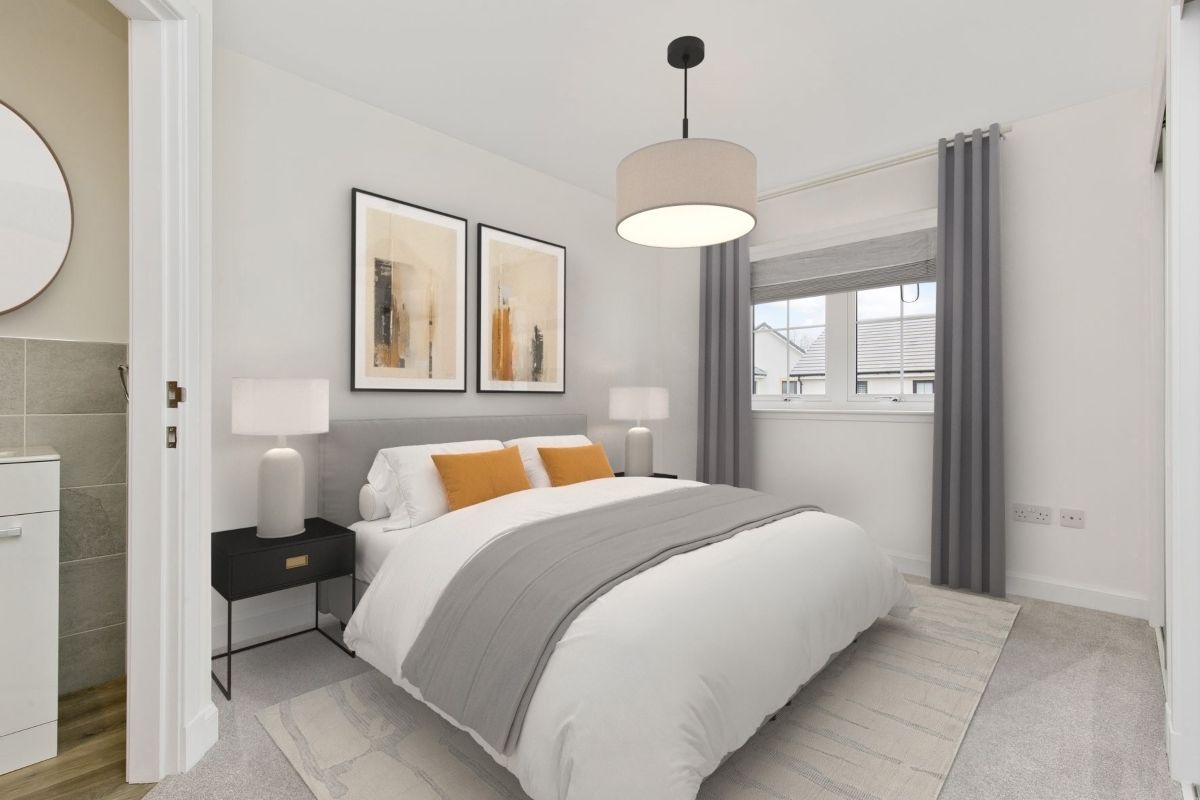Most Scottish homes were designed and built before the energy enlightenment. They consume a mass of energy for heating and powering appliances and do not save energy. It translates to hefty energy bills as well as higher CO2 emissions. By 2033, all homes in Scotland should achieve at least EPC Band C energy efficiency. With a sharp rise in energy price caps and decarbonisation regulations coming into effect, energy-efficient new build homes are the answer to affordable and low-carbon living. You can no longer postpone energy efficiency at home because it is already the future.
So, how do new build homes help save energy?
Keeping unwanted energy consumption at bay
Did you know that only about 5% of the electricity used by traditional or incandescent lighting gets converted to visible light? The rest gets wasted as heat. On the other hand, LED lighting converts up to 95% of its energy into light. Using LED instead of conventional lighting can reduce lighting bills and carbon emissions. New build homes come with the LED light fixtures.
New build homes are also better insulated than older homes. Heat loss amounts to greater energy consumption. Without proper insulation, homes can lose up to 45% of their heat. Over 20% of heat escapes through poorly-insulated roofs. Well-insulated roofs and lofts can save up to 25% of energy. Cavity wall insulation and floor insulation save you 10% heat loss. Energy-efficient UPVC windows are a high-performing alternative to save energy.
With a thermostat, programmer, and thermostatic radiator valves, your central heating curbs energy use. Thermostatic radiator valves regulate the temperature of individual radiators and are installed in new build homes.
Supporting sustainable living
Modern homes have greater sustainability. For example, combi boilers capable of converting to hydrogen are future-proof. When the connection of new homes in the UK to the gas grid ends in 2025, boilers using clean hydrogen or electric-powered heat pumps will be operating more sustainably. These homes also have a smaller carbon footprint. HBF report ‘Greener, Cleaner, Cheaper’ finds that the average new build home emits 2.38 tonnes less carbon each year than an existing property.
Access to renewable and cost-effective energy sources like solar panels can power your home sustainably.
Lowering utility bills
New build homeowners save an average of £435 to £555 a year on energy bills. Soaring energy prices have made heating unaffordable to many across the UK. However, modern homes benefit from the latest technology and lower running costs for all household utilities. Due to their choice of building materials, thermal-efficient insulation, high-quality windows & doors, advanced heating systems, improved wall design and well-lit spaces, they are also low-maintenance.
Saving water
Dishwashers and washing machines regularly use a lot of water in household consumption. More efficient appliances with higher energy ratings use less water and energy. Water-efficient showerheads save more than a third of water plus the energy to heat it. They still offer a great showering experience. Dual flush toilets have a maximum flush of 6 litres to comply with the Water Fittings Regulations.
Adding aerators or water restrictors in modern taps adds air into the water for less water use. The flow feels the same. Bathroom fittings manufacturers now utilise the latest water-efficient technology to deliver better products.
Better quality living
Energy efficiency isn’t just about lowering expenses and minimising carbon footprint. It is also about improving living standards. A well-insulated home with regulated heating systems and open-plan floorplans for improved air circulation and natural light means a comfortable home. You will be spending less time on maintenance or retrofitting that can also be expensive. Your home will be drought-free, damp-free, ventilated, and bright. You will be able to heat your home with less energy and cut down on energy bills. New home dwellers will have affordable energy thanks to energy-saving fittings and appliances.
Boosting resale value
More and more homebuyers are looking to buy energy-efficient homes. It saves them the trouble of having to retrofit. New build properties have a higher energy efficiency rating than older properties. Having a good energy performance certificate impacts the value of the property. The more energy improvements to a home, the more your chance of selling it for the asking price. Additional energy-saving fittings like solar panels on the roof can boost property value. With the net zero target slowly approaching and older energy technology phasing out, buyers are looking for much more than a good-looking home.
Energy-efficient homes are no longer a future necessity but the current housing standard for economic and environmental sustainability. Energy prices will only rise while our dependency on conventional energy will eventually phase out. Securing an energy-efficient home built to low-carbon specifications and regulations will ensure a comfortable home life for longer. Do you know that GS Brown Construction homes incorporate the latest energy-saving specifications into every development? Each home is a style statement built for contemporary living with high-quality materials, energy efficiency and modern designs.




